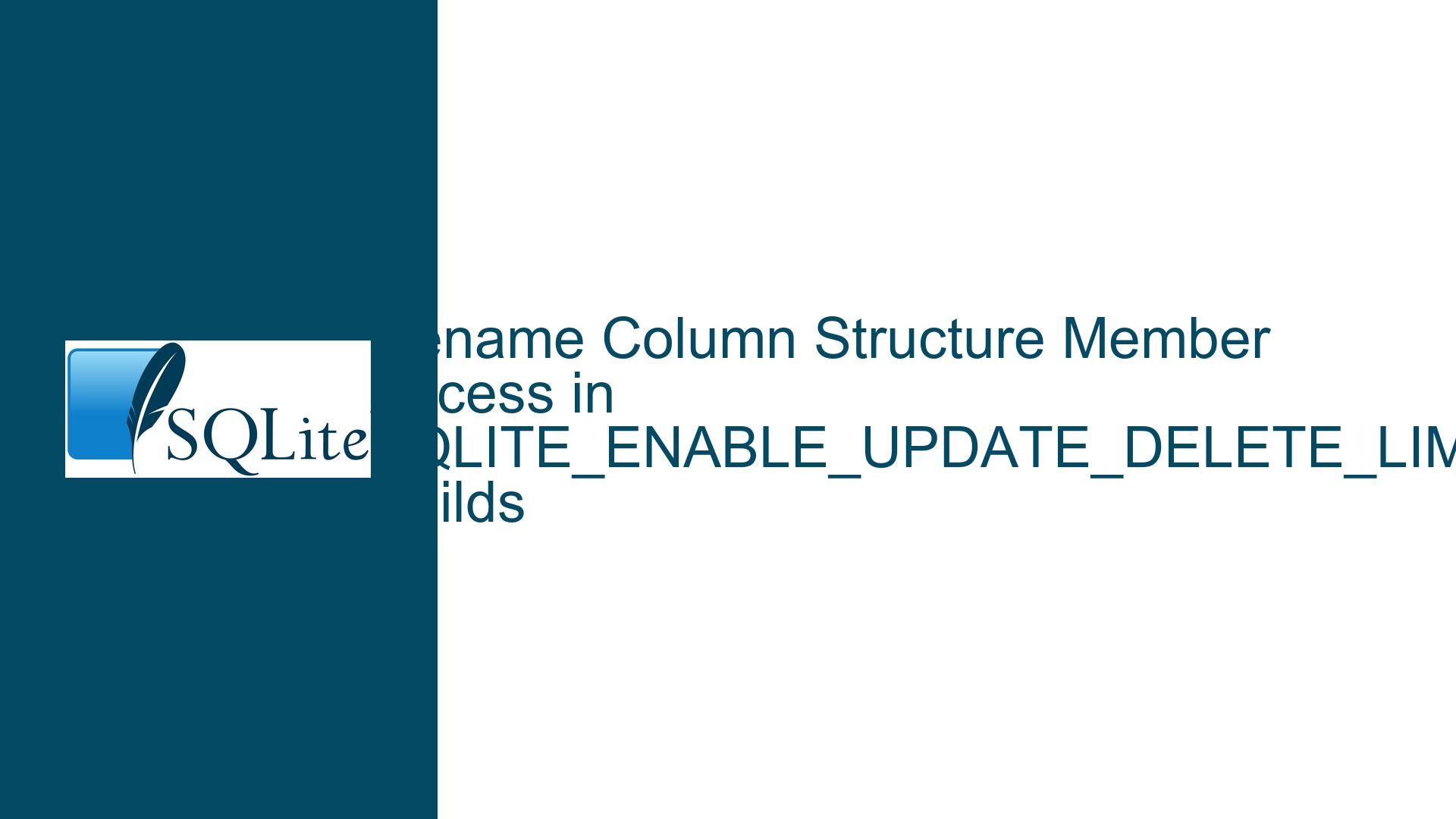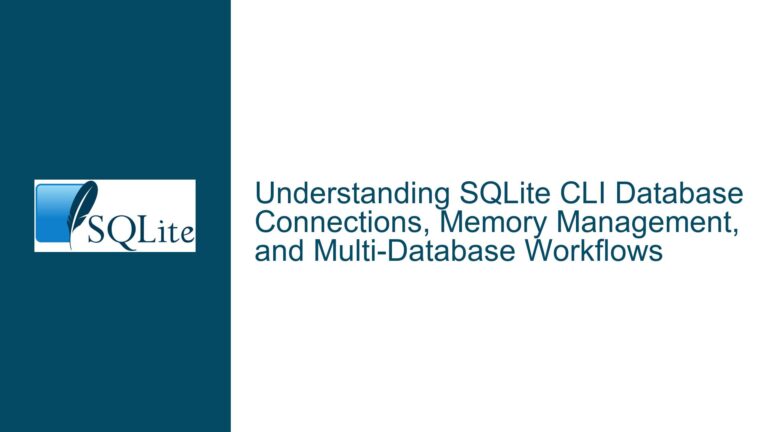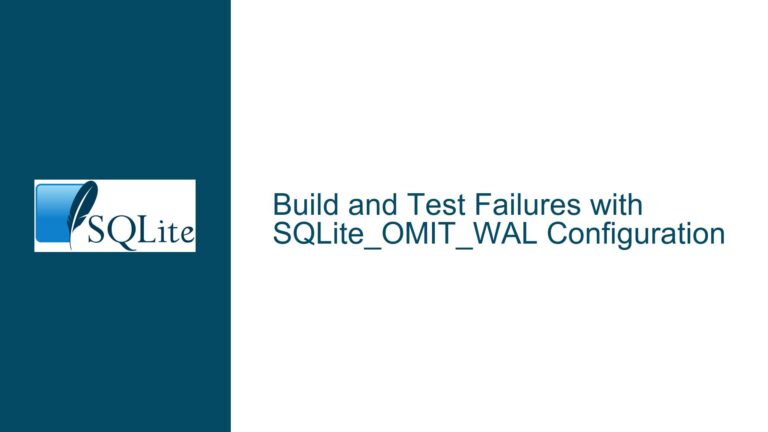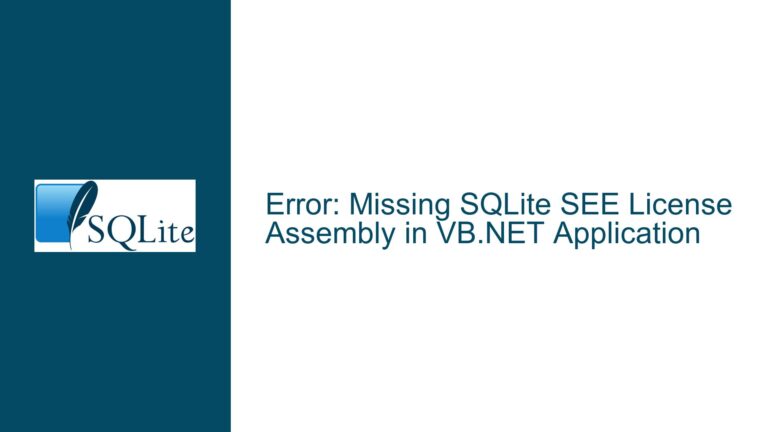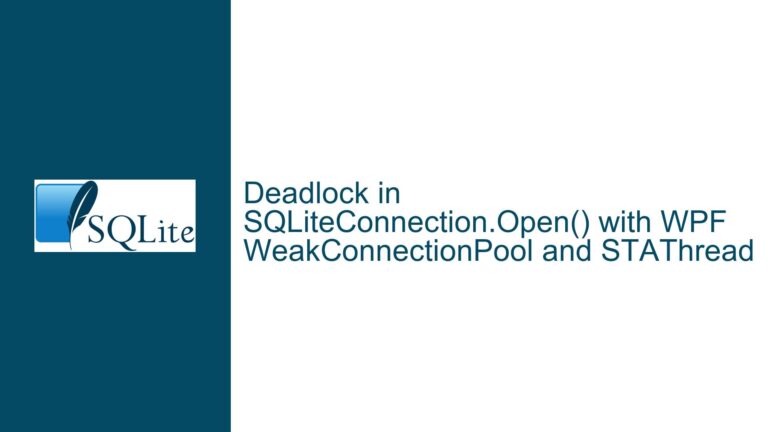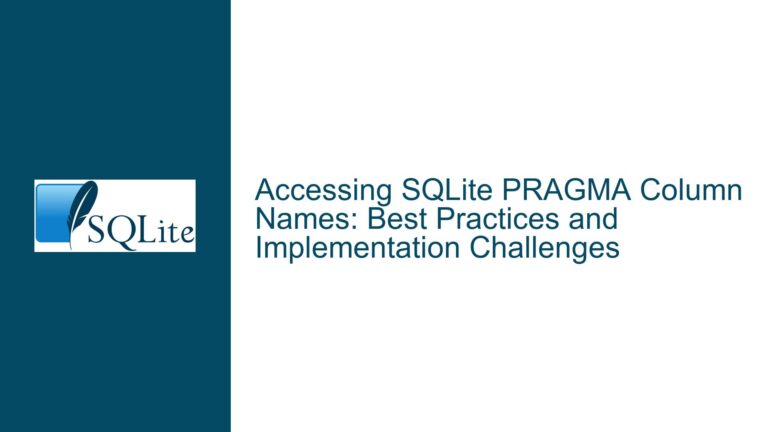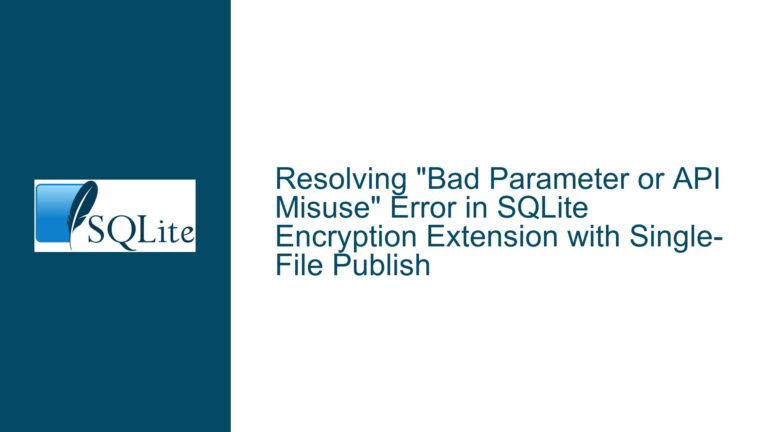Rename Column Structure Member Access in SQLITE_ENABLE_UPDATE_DELETE_LIMIT Builds
Issue Overview: Compilation Errors Due to Column.zName Access in delete.c
When compiling SQLite with the SQLITE_ENABLE_UPDATE_DELETE_LIMIT option enabled, a critical build failure occurs in the delete.c module. The error manifests as compiler complaints about zName not being a member of the Column structure. This issue arises specifically in code blocks responsible for constructing expressions related to primary key column access during DELETE operations with LIMIT clauses. The root conflict stems from outdated references to the Column.zName field in contexts where the SQLite codebase has migrated to using Column.zCnName for column name storage.
The problem is tightly coupled with conditional compilation directives. When SQLITE_ENABLE_UPDATE_DELETE_LIMIT is defined, SQLite activates logic for handling DELETE statements with LIMIT clauses, which requires precise identification of primary key columns. The code attempts to retrieve column names from the Column structure using the zName field, which no longer exists in the current schema representation. This discrepancy triggers fatal compilation errors, halting the build process.
The error messages explicitly reference line numbers in delete.c and sqliteInt.h, highlighting the mismatch between the code’s expectations of the Column structure layout and its actual implementation. The Column structure in sqliteInt.h (line 2032 in the reported case) contains zCnName instead of zName, indicating a structural change that wasn’t propagated to all code paths conditionally compiled under SQLITE_ENABLE_UPDATE_DELETE_LIMIT.
Possible Causes: Misalignment Between Column Structure Fields and Conditional Code Paths
The compilation failure originates from one primary cause with several contributing factors:
1. Structural Renaming Without Full Codebase Synchronization
The SQLite codebase underwent internal refactoring where the Column.zName field was renamed to Column.zCnName. This change likely occurred to align with naming conventions or to support additional column metadata. However, the code segments guarded by SQLITE_ENABLE_UPDATE_DELETE_LIMIT in delete.c were not updated to reflect this renaming. This oversight suggests that the affected code paths are either less frequently exercised in standard builds or were missed during automated refactoring tools’ scope.
2. Conditional Compilation Complexity
The SQLITE_ENABLE_UPDATE_DELETE_LIMIT option enables non-standard SQL syntax extensions (e.g., DELETE … LIMIT), which are not part of core SQLite’s default feature set. Code under this directive may receive less rigorous testing compared to core functionality, increasing the likelihood of regressions when structural changes occur elsewhere. The error demonstrates how conditional compilation can create "dark corners" in the codebase where updates to shared structures are not uniformly applied.
3. Primary Key Handling in DELETE Operations with LIMIT
The failing code constructs expressions to identify primary key columns during row deletion. When the primary key is composite (spanning multiple columns), SQLite dynamically generates a vector expression to represent it. The code retrieves column names from the Column structure to build these expressions. The shift from zName to zCnName implies that column name storage was centralized or modified to handle case sensitivity or internationalization, but the DELETE logic’s reliance on the old field name created a direct dependency on deprecated structure elements.
4. Build System and Compiler Configuration
While not the root cause, the build environment plays a role in surfacing this error. Compilers like MSVC (as evidenced by the error C2039 messages) enforce strict struct member access checks, immediately flagging invalid references. In environments with laxer compiler settings or alternative toolchains, this issue might have remained undetected longer, exacerbating downstream debugging efforts.
Troubleshooting Steps, Solutions & Fixes: Aligning Column Name Access with Current Structure Definitions
Step 1: Validate the Column Structure Definition
Begin by inspecting the Column struct definition in sqliteInt.h (line 2032 in the error context). Confirm that zCnName is the valid member for storing column names and that zName is absent. This verification ensures the reported error isn’t due to a local codebase inconsistency (e.g., partial updates or merge conflicts).
Step 2: Apply Targeted Field Renaming in delete.c
Modify the two erroneous lines in delete.c where zName is accessed:
- Change
pTab->aCol[pPk->aiColumn[0]].zNametopTab->aCol[pPk->aiColumn[0]].zCnName - Change
pTab->aCol[pPk->aiColumn[i]].zNametopTab->aCol[pPk->aiColumn[i]].zCnName
These changes align the column name accesses with the current Column struct layout. The provided patch in the forum discussion already encapsulates this fix.
Step 3: Audit All Conditional Code Paths for Similar Issues
The SQLITE_ENABLE_UPDATE_DELETE_LIMIT directive isn’t the only optional feature that might interact with column name handling. Perform a systematic search for zName references across the entire codebase, particularly in modules related to UPDATE/DELETE operations, expression parsing, and primary key management. Use tools like grep or IDE-based code navigation to identify lingering zName usages.
Step 4: Rebuild with Clean Compilation Flags
After applying the fixes, execute a clean rebuild with SQLITE_ENABLE_UPDATE_DELETE_LIMIT explicitly enabled. This ensures no intermediate object files or cached compilation states mask residual issues. For example:
make clean
./configure --enable-fts5 --enable-update-delete-limit
make
Step 5: Functional Testing of DELETE with LIMIT Clauses
Post-compilation, validate that DELETE statements with LIMIT clauses function correctly, especially when involving renamed columns or composite primary keys. Example test case:
CREATE TABLE test (id INTEGER PRIMARY KEY, name TEXT);
INSERT INTO test (name) VALUES ('a'), ('b'), ('c');
DELETE FROM test WHERE name LIKE '%a%' LIMIT 1;
Monitor for runtime errors or assertion failures that might indicate deeper incompatibilities beyond the initial compilation fix.
Step 6: Cross-Reference Column Name Usage in Related Modules
Investigate whether other modules (e.g., update.c, where.c) exhibit similar dependencies on Column.zName, particularly in code paths activated by less common compile-time options. This proactive check prevents recurrence of analogous issues in other contexts.
Step 7: Contribute the Fix to the SQLite Codebase
If the fix isn’t already present in the latest SQLite release, submit a patch to the SQLite team via their official channels. Include a detailed description of the compilation environment, error logs, and the context of SQLITE_ENABLE_UPDATE_DELETE_LIMIT usage to expedite review.
Step 8: Update Internal Documentation and Coding Guidelines
For organizations maintaining custom SQLite forks, update internal documentation to highlight the zCnName convention and mandate cross-referencing struct definitions when modifying column-related logic. Implement pre-commit hooks or static analysis rules to detect invalid struct member accesses.
Step 9: Evaluate Compiler Warning Policies
Enhance compiler warning levels to catch similar issues earlier. For example, GCC’s -Werror=incompatible-pointer-types and MSVC’s /W4 can surface type mismatches or invalid member accesses during development.
Step 10: Monitor Community Feedback and Bug Trackers
Track SQLite’s mailing lists and GitHub repositories for discussions around zCnName adoption or related refactoring efforts. Engage with community reports to identify edge cases where column name handling might still diverge between core and extension features.
By methodically addressing the struct member misalignment, auditing conditional code paths, and reinforcing build hygiene, developers can resolve the immediate compilation error while fortifying the codebase against analogous issues. The solution underscores the importance of synchronizing structural refactors with conditional compilation domains—a critical consideration in large, configurable codebases like SQLite.
